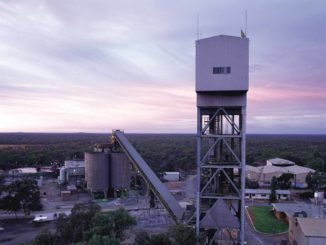NSW primary producers continue to be challenged by the current seasonal conditions, with the latest NSW Department of Primary Industries (DPI) State Seasonal Update indicating almost all the state is now in mild to severe drought.
Dry and warm conditions remained through May with only isolated areas of the North Coast and parts of the Riverina, South East and Murray regions receiving average rainfall.
DPI’s Leader of Climate Applications and Digital Agriculture, Dr Anthony Clark said many areas across the state received average to well below average rainfall, with some recording zero rainfall.
“Large areas of Western, North West, Northern Tablelands, North Coast, Central West and Greater Sydney received less than 10 mm of rain,” Mr Clark said.
“Most of inland NSW had mild to warm daytime temperatures between 18-27ºC, with eastern NSW ranging from 6-27ºC.”
Support for farmers and their families facing drought has been boosted by $284million in the NSW Budget 2018, bringing the NSW Government’s drought relief package to well over half a billion dollars.
Premier Gladys Berejiklian, Deputy Premier and Minister for Regional NSW John Barilaro and the Minister for Primary Industries Niall Blair visited Dubbo last week to announce increased financial support.
The newly announced financial support includes funding for mental health, key infrastructure including Doppler weather stations and streamlining kangaroo management.
“We know the drought is hitting our farmers hard but we want to reassure communities that we are doing everything we can to make sure the right help is available at the right time,” Ms Berejiklian said.
Measures such as the Farm Innovation Fund have helped farmers build on-farm infrastructure, and prepare for and battle drought.
“Our farmers are continuing to tell us that these loans are one of the best measures available, which is why we have decided to double the funding available, taking the fund’s total value to $500million.”
The NSW Government will also expand the criteria of the Fund to deliver $50,000 seven-year interest free loans to allow producers to bring in fodder and grain to sustain stock on hand, as well as install key water infrastructure.
As the pressure to destock continues, the fund will be extended to enable producers to collect and store genetics of their herd or flock, which will allow for a much quicker recovery when good times return.
Other measures include an allocation of more than $4million to support communities facing natural disaster and drought and a new kangaroo management strategy to decrease kangaroo numbers in drought-hit areas.


